Why We Choose Alpaca & You Should Too!
Alpaca fiber is the sustainable, socially responsible, cruelty-free and functional alternative to the current textile market's materials. It plays a large role in the "Slow Fashion" movement, which prioritizes environmental and social impact over cheap and fast fashion--something we at Fluff Alpaca strongly believe in. Read on for more details on alpaca and its contribution to a healthy planet and happy humans!
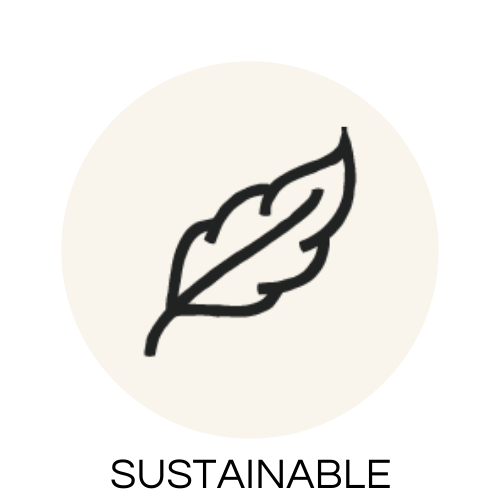

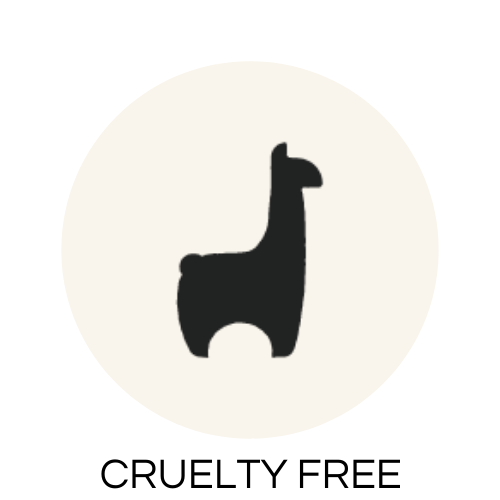
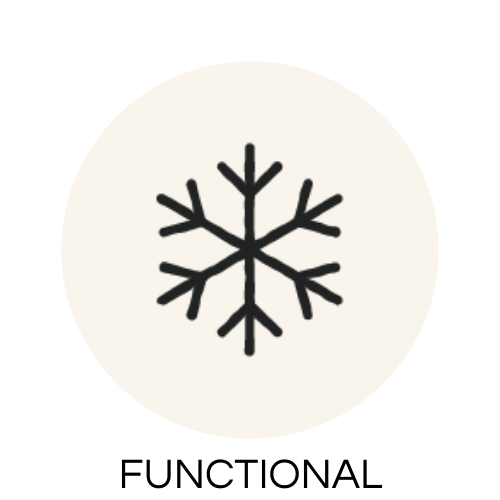
SUSTAINABLE
The fashion industry, including the production, processing and distribution of the materials used, is one of the greatest contributors to pollution on the planet. One of the best ways to minimize the environmental pollution caused by this industry is to be more conscious about the types of fibers and materials we are using--and choose more environmentally-friendly options, such as alpaca fiber.
RAISING & HERDING
Raising alpacas is incredibly eco-friendly compared to other animals used for their natural fiber. Alpacas, which are mainly bred in the Peruvian Andes, are "green" livestock. This means that they are light on the land, preventing soil erosion by "cutting" the grass while they graze, instead of pulling it out like other livestock animals, which allows the grass to continue to grow.
Furthermore, alpaca are very easy to care for. They only eat 1-2% of their weight per day, compared to cashmere goats (10%), therefore requiring little food, water or special attention. Their wool can produce 4-5 sweaters per year, compared to cashmere goats which only produce ONE sweater every FOUR years (that's 20x more garments!).
PROCESSING & PRODUCTION
Alpaca fiber not only lacks the lanolin of sheep’s wool and therefore does not require harsh chemicals for removal, but also proves to be higher yielding after processing due to relatively higher fiber diameter and length. Alpaca also comes in 23 beautiful natural colors that rarely require chemical dyeing for the creation of garments. And, of course, untreated alpaca fiber is completely eco-friendly and biodegradable.
We take care to sell products from brands that use natural fibers like alpaca, or recycled and organic textiles, including natural dyeing and printing processes.
WEARABILITY & OWNERSHIP
The enjoyment of alpaca garments for a lifetime is owed to its inherent durability. The nature of alpaca fiber makes it less susceptible to abrasion, pilling and general wear and tear even after the production process and into its life as a finished product.
In fact, alpaca lasts longer than other luxury fibers including wool, cashmere and silk, as it is both water and stain repellant, which makes alpaca garments the more sustainable option for reducing textile waste from discarded clothing.
GREEN RIVER HOLLOW FARM
Fluff's owners raise our own alpaca on our organic farm in Hillsdale, New York. We make sure to operate on principles of sustainability through organic, chemical-free raising and production of fiber.
CRUELTY-FREE
Alpacas are free-roaming herd animals that are only shorn once a year for their fiber. In fact, 85% of Peruvian alpaca fiber comes from independent smallholders with less than 50 animals in their free-range herd.
GENTLE SHEARING
While their fiber keeps them warm during the winter, it is a relief for them to have it gently sheared off in the warmer summer months. We have witnessed this with our own alpaca on Green River Hollow Farm. They are so ready to splash around in the baby pool once they are free of their winter coats!
NO-KILL
Furthermore, alpaca are never killed for their fur or fiber and we take great care to exclusively sell products from brands and manufacturers that only use fur from animals who have died of natural causes.
FUNCTIONAL
Alpaca outperforms its other natural counterparts in many ways. This versatile fiber is not only light and warm, but also incredibly soft and hypoallergenic, making it the perfect alternative to those of us who are sensitive to wool.
LIGHTNESS & WARMTH
Alpaca is known for its exceptional warmth despite the lightness of the fiber itself, which is a function of its hollow core (medullation) that enables an impressive retention of heat, surpassing even that of wool. This makes alpaca an ideal material for outdoor garments to be worn even in the coldest of climates, while its lightweight nature and versatility of the fiber also keeps you cool in the summer months, especially when blended with other natural fibers.
Alpaca also has incredible moisture-wicking capabilities which makes it an excellent fiber for socks, keeping your toes warm AND dry year round even when worn outside for hiking and sports.
SOFTNESS
The softness of alpaca is related to the fineness and scale structure of the fiber, which can vary based on age and sex of the alpaca. "Baby" alpaca and alpaca "fleece" make up 50% of the types of fiber and have a low micron count which makes it as soft and fine as cashmere (sometimes even softer!). It also has a low "prickle factor," especially compared to wool, which is makes it more comfortable against the skin.
DURABILITY
Alpaca fibers are longer and stronger than comparable wool fibers, with a greater resistance to pilling and general wear and tear. Alpaca fiber is also water and stain repellant as well as flame-resistant, which makes it easy to care for and more comfortable to wear even in bad weather conditions.
HYPOALLERGENIC
Due to the fiber's unique scale structure, low micron count and low prickle factor, alpaca is an excellent option for those with sensitive skin. Its lack of wool's lanolin, which requires chemical removal before processing, makes it an ideal hypoallergenic alternative to other natural luxury fibers that feel more itchy to the wearer.
VERSATILITY
Alpaca fibers come in a wide range of micron counts, from very fine to coarse, which makes it an incredibly versatile fiber to work with. Its relative strength despite its fineness compared to wool makes it the softer, stronger alternative for anything from lightweight fabrics with beautiful draping qualities to coarser rugs and carpets.

SOURCES
"A comparative study of the mechanical properties of wool and alpaca fibre," Liu, Xin, Hurren, Christopher and Wang, Xungai
“Alpaca: A Soft, Warm Fiber With A Better Ecological ‘Padprint,’"NRDC Clean By Design
CFDA Materials Index, CFDA.com
"Fiber characteristics of the Huacaya Alpaca," C.J. Lupton, A. McColl, R.H. Stobart
International Alpaca Association
"The Quality and Processing Performance of Alpaca Fibers," Wang, X.; Wang, L.; and Liu, X.
-

 Fluff Alpaca Fluff Women's Overlook Raglan Baby Alpaca Crewneck €170,95 2 colors available.
Fluff Alpaca Fluff Women's Overlook Raglan Baby Alpaca Crewneck €170,95 2 colors available. -

 Fluff Alpaca Fluff Women's Overlook Striped Raglan Baby Alpaca Crewneck €170,95 2 colors available.
Fluff Alpaca Fluff Women's Overlook Striped Raglan Baby Alpaca Crewneck €170,95 2 colors available. -

 Classic Alpaca Ninoska Nordic Alpaca Sweater €149,95
Classic Alpaca Ninoska Nordic Alpaca Sweater €149,95 -
Sold Out

 Yanawara Wayta Alpaca Sweater Poncho €180,95 1 color available.
Yanawara Wayta Alpaca Sweater Poncho €180,95 1 color available. -
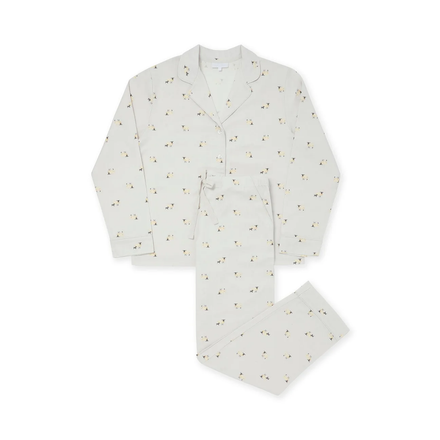
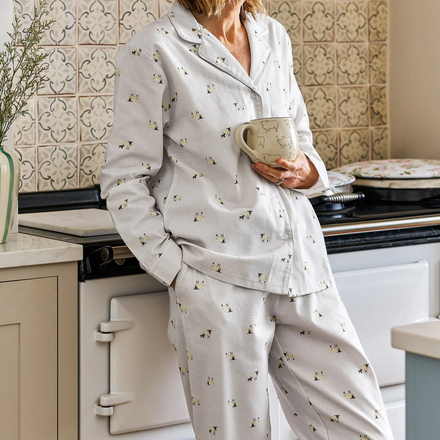 Sophie Allport Sophie Allport Sheep Women's Pajama Set €111,95
Sophie Allport Sophie Allport Sheep Women's Pajama Set €111,95 -

 Yanawara Yaja Alpaca Cardigan €221,95 3 colors available.
Yanawara Yaja Alpaca Cardigan €221,95 3 colors available.












